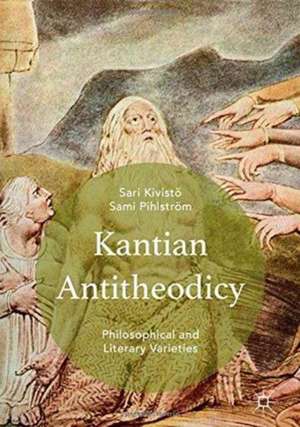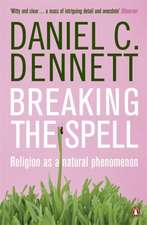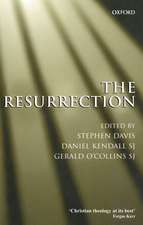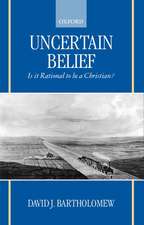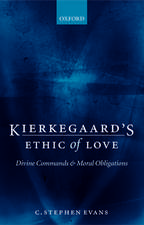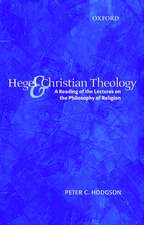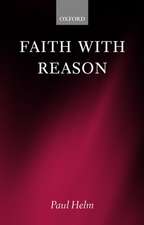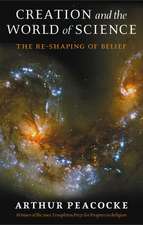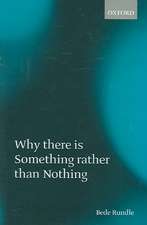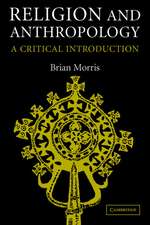Kantian Antitheodicy: Philosophical and Literary Varieties
Autor Sami Pihlström, Sari Kivistöen Limba Engleză Hardback – 21 noi 2016
| Toate formatele și edițiile | Preț | Express |
|---|---|---|
| Paperback (1) | 387.20 lei 43-57 zile | |
| Springer International Publishing – 23 iun 2018 | 387.20 lei 43-57 zile | |
| Hardback (1) | 393.13 lei 43-57 zile | |
| Springer International Publishing – 21 noi 2016 | 393.13 lei 43-57 zile |
Preț: 393.13 lei
Nou
Puncte Express: 590
Preț estimativ în valută:
75.25€ • 81.76$ • 63.25£
75.25€ • 81.76$ • 63.25£
Carte tipărită la comandă
Livrare economică 21 aprilie-05 mai
Preluare comenzi: 021 569.72.76
Specificații
ISBN-13: 9783319408828
ISBN-10: 3319408828
Pagini: 327
Ilustrații: IX, 320 p.
Dimensiuni: 148 x 210 x 24 mm
Greutate: 0.54 kg
Ediția:1st ed. 2016
Editura: Springer International Publishing
Colecția Palgrave Macmillan
Locul publicării:Cham, Switzerland
ISBN-10: 3319408828
Pagini: 327
Ilustrații: IX, 320 p.
Dimensiuni: 148 x 210 x 24 mm
Greutate: 0.54 kg
Ediția:1st ed. 2016
Editura: Springer International Publishing
Colecția Palgrave Macmillan
Locul publicării:Cham, Switzerland
Cuprins
1. Acknowledgments.- 2. Introduction.- 3. Chapter 1: Kantian Antitheodicism and Job’s Sincerity.- 4. Chapter 2: Suffering and Forgiveness in Kafka and Post-Holocaust Antitheodicism.- 5. Chapter 3: Evil, Absurdity, and Nonsense: Beckettian and Wittgensteinian Reflections.- 6. Chapter 4: Pragmatism, Suffering, and Truthfulness: From James to Rorty to Orwell.- 7. Conclusion: The Transcendental Antitheodicy of the “Sick Soul”.- References.- Index.
Notă biografică
Sari Kivistö is Docent of Comparative Literature and (since 2015) Director of the Helsinki Collegium for Advanced Studies at the University of Helsinki, Finland. She is the author of The Vices of Learning (2014) and Medical Analogy in Latin Satire (2009).
Sami Pihlström is Professor of Philosophy of Religion at the Faculty of Theology, University of Helsinki, Finland (since 2014). He was previously Director of the Helsinki Collegium for Advanced Studies (2009-2015). He is also President of the Philosophical Society of Finland. His previous publications include Pragmatist Metaphysics (2009) and Taking Evil Seriously (2014).
Sami Pihlström is Professor of Philosophy of Religion at the Faculty of Theology, University of Helsinki, Finland (since 2014). He was previously Director of the Helsinki Collegium for Advanced Studies (2009-2015). He is also President of the Philosophical Society of Finland. His previous publications include Pragmatist Metaphysics (2009) and Taking Evil Seriously (2014).
Textul de pe ultima copertă
This book defends antitheodicism, arguing that theodicies, seeking to excuse God for evil and suffering in the world, fail to ethically acknowledge the victims of suffering. The authors argue for this view using literary and philosophical resources, commencing with Immanuel Kant’s 1791 “Theodicy Essay” and its reading of the Book of Job. Three important twentieth century antitheodicist positions are explored, including “Jewish” post-Holocaust ethical antitheodicism, Wittgensteinian antitheodicism exemplified by D.Z. Phillips and pragmatist antitheodicism defended by William James. The authors argue that these approaches to evil and suffering are fundamentally Kantian. Literary works such as Franz Kafka’sThe Trial, Samuel Beckett’s Waiting for Godot, and George Orwell’s Nineteen Eighty-Four, are examined in order to crucially advance the philosophical case for antitheodicism.
Caracteristici
Combines both literary and philosophical methodologies, in order to examine and confront evil and antitheodicy. Examines and defends a wide range of antitheodicisms, analysing post-Holocaust ethics, Wittgensteinian antitheodicism and pragmatic antitheodicism. Provides critical analysis of a variety of philosophical and literary texts, from Samuel Beckett's Waiting for Godot to Franz Kafka's The Trial.
